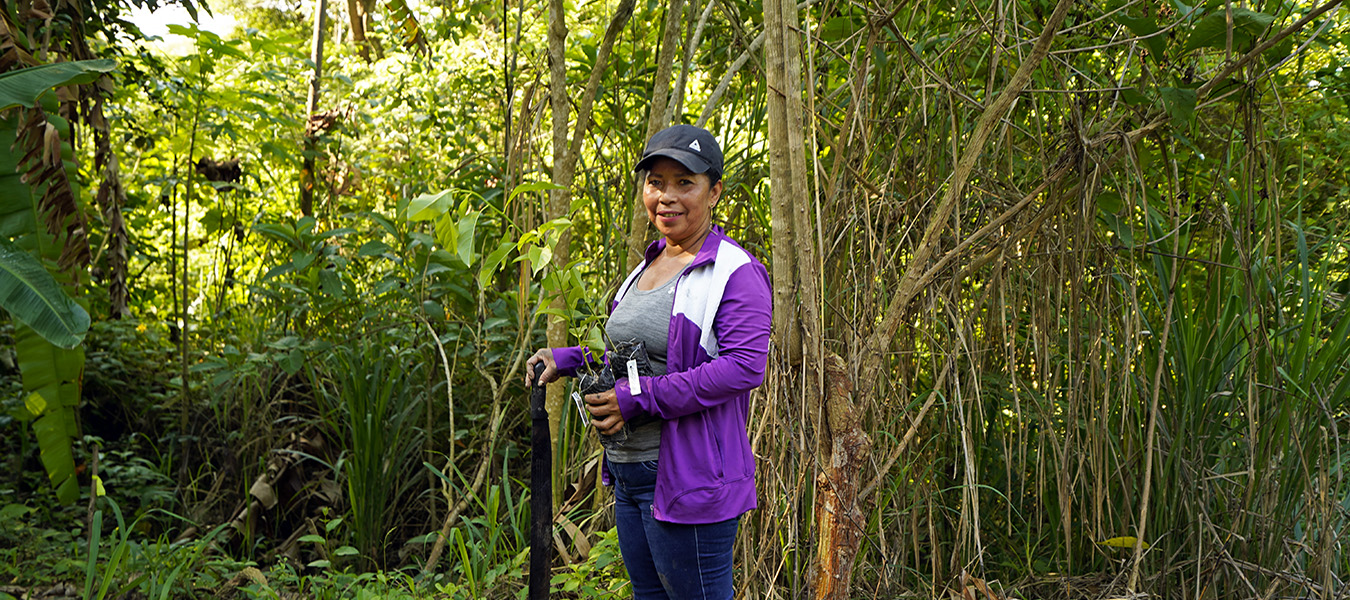
Ceiba’s new Conservation Partnerships program recognizes and supports groups and individuals committed to the hard work of advancing nature-positive change. Many of the communities most affected by the dual environmental crises of biodiversity loss and climate change did little to cause these problems, but they live in and depend upon the world’s most biodiverse areas that are the focus of conservation action.
This innovative partnership program builds upon Ceiba’s long-standing efforts in Ecuador to support local conservation leaders: People like the Lima family who started the El Pahuma Orchid Reserve near Nanegalito, Ecuador to protect the forest from rampant logging and hunting; or Narcisa and Margarita who incorporated trees into their coffee grove near Tabuga, Ecuador to foster pollinator diversity and improve the quality of their stream.
Ceiba has coordinated successful conservation programs in Ecuador for over 25 years. These efforts have been built upon meaningful long-term connections in rural communities, and have focused on fostering grassroots initiatives that keep land in local hands and support communities in protecting the environments upon which they depend. Now the foundation seeks to develop an international network of small, place-based conservation partners to achieve mutual goals. We will leverage our own experience in international conservation to aid selection of partner organizations and inform how we best can support their efforts.
Partners will be identified by the Ceiba Foundation and our Conservation Advisory Panel, comprised of alumni, board members and staff, local experts, and past collaborators. Eligible groups seeking partnership may apply to the Seeds of Sustainability Fund, a small-grant program that supports promising local initiatives in the tropics that aim to address the loss of biodiversity loss and climate change. Grant recipients join our Conservation Partner Network to facilitate dialogue, share ideas and resources, and build a learning community. The advisory panel reviews grant applications, but also coordinates communication with partners throughout the life of each project.
Small organizations and innovative ideas need support to expand their scope and grow their impact. The SoS Fund is here to help!
The Seeds of Sustainability Fund is intended to stimulate or catalyze projects that address biodiversity loss, climate change, and environmental inequality.
Non-profit organizations, community organizations or associations, small businesses, and individuals from developing countries in the tropics are eligible to apply. Preference will be given to projects affecting threatened habitat types and species that align with our current Conservation Priorities (see below).
We support the following kinds of applicants and projects:
Ceiba has supported the protection of threatened tropical species and habitats for years through a combination of conservation programs, research, and educational outreach. We emphasize connecting people with nature, and ensuring that conservation projects genuinely listen to, are led by, and actively benefit stakeholders.
Proposals for Seeds of Sustainability funding should link to one of the following focus areas:
The level of funding applicants may request depends on their level of partnership.
*First-time applicants: Anyone applying for the first time to for a Seeds of Sustainability grant may request up to $5,000 maximum.
Conservation Partners: First-time grant recipients who demonstrate successful completion of their project, may be invited to join our Conservation Partner network and be eligible to apply for $10,000 (or more) annually. Continuation of funding depends highly on the ability to demonstrate tangible conservation outcomes that align with our Conservation Priorities after each funding cycle.
Do you or your organization have an idea not listed above, something you believe will genuinely contribute to conservation? We don’t have all the answers, and always benefit from listening to the diverse ideas other conservation leaders. Feel free to contact us with a brief description of your project to see if it falls within our funding guidelines.
Check if you are eligible and apply by the deadline!
Only organizations that meet the following eligibility criteria may apply for a Seeds of Sustainability grant:
Applicants must meet the eligibility criteria. If you are unsure, use the button above to access our Eligibility Check.
To apply:
We recognize that complex reporting and accounting requirements can be unnecessarily burdensome for small organizations. Let’s save the planet, and not make more paperwork for ourselves! Instead, our SOS grant recipients and Conservation Partners must agree to send periodic updates on project progress. These updates may be requested weekly, monthly, or bimonthly depending on project duration.
Deadlines for sending in these updates will be specified in your award letter. The updates should include very brief text, plus photos or short videos suitable for distribution on our social media channels. These updates are intended to keep our community of donors and advisors, who make these grants possible, engaged in and informed about the projects they are supporting.
At the end of your project, you are required to submit a summary of the project’s outcomes, and how the funds were used.
Thanks to our network of conservation partners, Ceiba is extending its reach while supporting locally-conceived and locally-operated projects
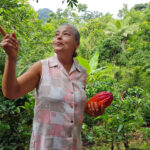
Cacao and coffee are grown in this ecologically sustainable farm, owned and operated by a group of hardworking and environmentally conscious women. Ceiba has supported Finca La Tía through: inviting marketing and promotion experts; biological surveys in farmland and streamside forest; developing ecotourism plans; leading education programs to the site. Finca La Tía has also provided tours to our Bosque Mar and Tropical Conservation Semester students.
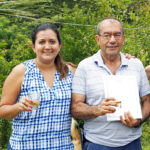
Family-run reserve protecting approximately 500 acres of highly threatened tropical dry forest, on the coast of Ecuador. Ceiba has supported Reserva Lalo Loor through: establishment of the reserve via conservation easement; collaborative development of education and research infrastructure; technical and financial support for management; ongoing site promotion as environmental education, and ecotourism, destination; offering training seminars; conducting biological field research. (learn more)
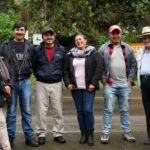 Family-owned and reserve in Pichincha province, Ecuador, protecting orchid-rich cloud forest. Ceiba has supported El Pahuma through: establishment of the reserve via conservation easement (the first in S. America); collaborative development of education and research infrastructure; conducting biological surveys; technical and financial support for management; ongoing site promotion as environmental education, and ecotourism, destination. (learn more)
Family-owned and reserve in Pichincha province, Ecuador, protecting orchid-rich cloud forest. Ceiba has supported El Pahuma through: establishment of the reserve via conservation easement (the first in S. America); collaborative development of education and research infrastructure; conducting biological surveys; technical and financial support for management; ongoing site promotion as environmental education, and ecotourism, destination. (learn more)
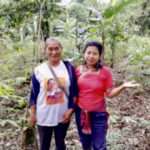
An organization of indigenous women who practice ancestral medicine and work to preserve the knowledge and practices of the Napu Runa culture. Ceiba supports their initiative Runa Kawsay Tarpuna: Sowing Indigenous Culture, in which the Kichwa midwives protect and improve forest diversity. They collect seeds from trees that are in danger of extinction to cultivate in plant nurseries and redistribute the seeds to “chakras,” or dedicated regions of mixed agroforestry.
 New organization focusing on environmental education and forest protection, in Manabí province on Ecuador’s coast. Ceiba is supporting Seas and Forests through grants to carry out innovative education programs for rural school children, and support regional forest conservation programs. Current projects include studying unexplored insect communities, reforestation, and training community members as tour guides.
New organization focusing on environmental education and forest protection, in Manabí province on Ecuador’s coast. Ceiba is supporting Seas and Forests through grants to carry out innovative education programs for rural school children, and support regional forest conservation programs. Current projects include studying unexplored insect communities, reforestation, and training community members as tour guides.
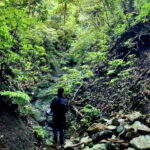
Conservation organization in El Salvador with a mission to protect the region’s coastal dry tropical forest and three groups of endangered species that reside within: sea turtles, yellow-naped parrots, and Mexican spider monkeys. Ceiba supports each of these initiatives, including operation of their sea turtle nursery, protection of parrot nests against poaching, and surveying of spider monkey populations. These projects also employ and involve community members in local conservation efforts.

Non-profit organization that aims to create reserves for reptiles and amphibians and pioneer the discovery of new species. Ceiba supports their project to preserve the habitat of the Mindo Harlequin Toad, a species that was thought to be extinct for several decades. The Khamai Foundation recently located the only known living member of this species (“Tyrone the Solitary”), and they keep a close eye on him in a protective outdoor terrarium as they implement a rapid-response in-situ breeding and monitoring program.
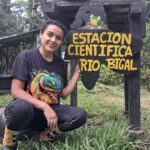
Non-profit conservation organization that oversees protection of the Bigal River Biological Reserve, a forested tropical region of the Ecuadorian Andes. The region is recognized as an Important Bird area (IBA) and a Key Biodiversity Area (KBA) by the International Union for Conservation of Nature. Ceiba is supporting key conservation activities by Sumac to protect this reserve from encroachment, including daily patrols, trail maintenance, wildlife monitoring, signage, and chaperoning of student/volunteer groups.
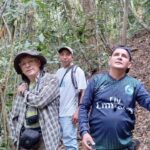
This research project will investigate aspects of the diversity of woody species within the Lalo-Loor reserve, including tree growth, mortality, and recruitment. Ceiba’s funding will support a taxonomic review to update scientific names, as well as determine the conservation status of endemic species present in the study plots. The project leader, Catalina Quintana is a professor and researcher at the Pontificia Universidad Católica del Ecuador with extensive experience in forest dynamics and forest ecology across montane, Amazonian, and dry forests.
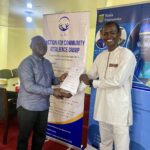
With Ceiba’s Seeds of Sustainability grant, the Njala University Green Initiative will establish a student-led nature club at Njala University in Sierra Leone, engaging students in hands-on reforestation and conservation efforts. The initiative will cultivate a new generation of environmental stewards through restoration projects on the Kasewe Forest Reserve (a critical biodiversity hotspot), workshops on eco-friendly practices, and community outreach.
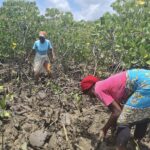
NatureHub is a nonprofit organization in Kenya that, with Ceiba’s support, plans to restore degraded mangrove ecosystems in the Kidongo region with native species. The project will also introduce beekeeping as a sustainable, conservation-based livelihood for the Kidongo community, particularly women. NatureHub will provide comprehensive training for women in apiculture techniques, honey harvesting, and product marketing.

AICRO-Uganda is a conservation nonprofit located in the Kyenjojo district, a critical ecological region between the Matiri Forest Reserve and Kibale National Park. This region is home to threatened species such as the Eastern Chimpanzee and the Grey-Crowned Crane. Ceiba is helping fund their project to restore this important forest corridor and provide locals with training about sustainable agroforestry practices.